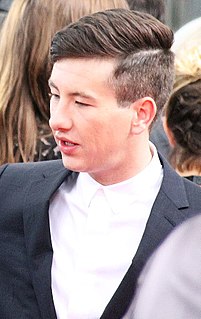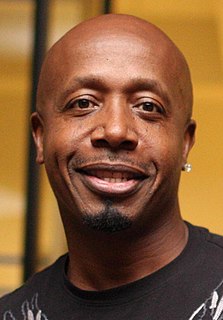A Quote by Alfred Eisenstaedt
With photography, everything is in the eye and these days I feel young photographers are missing the point a bit. People always ask about cameras but it doesn't matter what camera you have. You can have the most modern camera in the world but if you don't have an eye, the camera is worthless. Young people know more about modern cameras and lighting than I do. When I started out in photography I didn't own an exposure meter - I couldn't , they didn't exist! I had to guess.
Related Quotes
For a period of time, I carried cameras with me wherever I went, and then I realized that my interest in photography was turning toward the conceptual. So I wasn't carrying around cameras shooting stuff, I was developing concepts about what I wanted to shoot. And then I'd get the camera angle and do the job
For a period of time, I carried cameras with me wherever I went, and then I realized that my interest in photography was turning toward the conceptual. So I wasn't carrying around cameras shooting stuff, I was developing concepts about what I wanted to shoot. And then I'd get the camera angle and do the job.
It's just a matter of who you are and how you talk to people. Your subjects will trust you only if you're confident about what you're doing. It really bothers me when photographers first approach a subject without a camera, try to establish a personal relationship, and only then get out their cameras. It's deceptive. I think you should just show up with a camera, to make your intentions clear. People will either accept you or they won't.
I don’t use an exposure meter. My personal advice is: Spend the money you would put into such an instrument for film. Buy yards of film, miles of it. Buy all the film you can get your hands on. And then experiment with it.That is the only way to be successful in photography. Test, try, experiment, feel your way along. It is the experience, not technique, which counts in camera work first of all. If you get the feel of photography, you can take fifteen pictures while one of your opponents is trying out his exposure meter.
Photography today is accomplishing a lofty mission in which every German should collaborate by buying a camera. The German people is ahead of every other in the technical domain and, thanks to its exceptional qualities, the small camera has conquered the whole world... Much is at stake here from the point of view of popular consumer goods and, furthermore, photography has a particularly important political role to play. (Addressing the Berlin Photography Fair, 1933)
It's possible to think of photography as an act of editing, a matter of where you put your rectangle pull it out or take it away. Sometimes people ask me about films, cameras and development times in order to find out how to do landscape photography. The first thing I do in landscape photography is go out there and talk to the land - form a relationship, ask permission, it's not about going out there like some paparazzi with a Leica and snapping a few pictures, before running off to print them.
The camera is one of the most frightening of modern weapons, particularly to people who have been in warfare, who have been bombed and shelled for at the back of a bombing run is invariably a photograph. In the back of ruined towns, and cities, and factories, there is aerial mapping, or spy mapping, usually with a camera. Therefore the camera is a feared instrument, and a man with a camera is suspected and watched wherever he goes... In the minds of most people today the camera is the forerunner of destruction, and it is suspected, and rightly so.

































